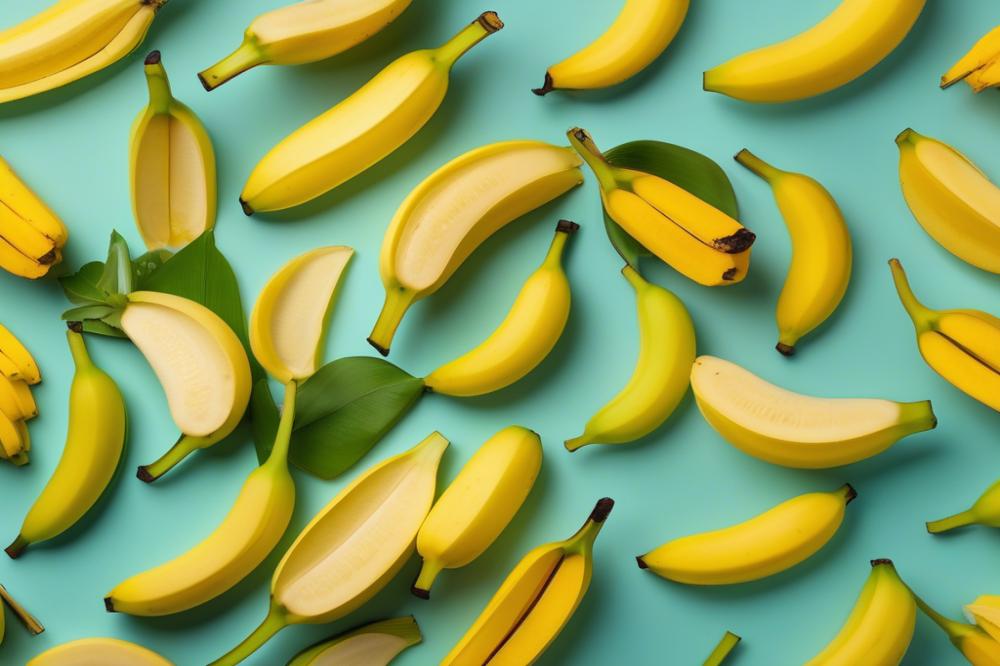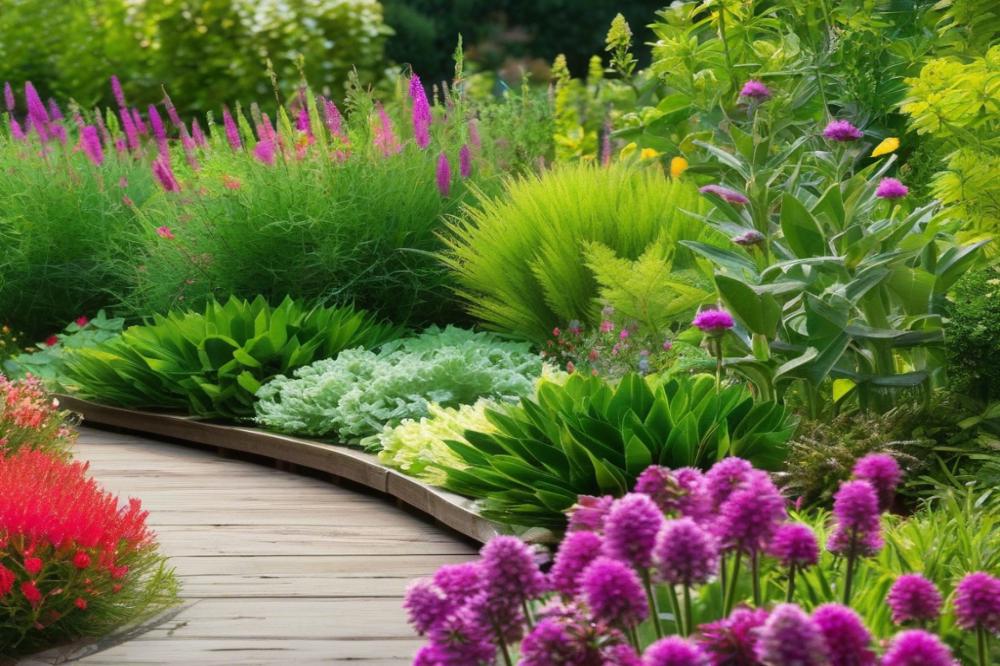Introduction
Organic gardening is becoming increasingly popular among those who care about their plants and the environment. By using natural pest control methods, gardeners can create a thriving ecosystem. This approach not only protects plant health but also promotes sustainability. In an age where chemicals often dominate gardening, finding eco-friendly methods becomes essential.
One common issue gardeners face is the invasion of aphids. These tiny pests can wreak havoc on plants, sucking sap and weakening them. Aphid prevention should be a priority for anyone aiming for a healthy garden. Thankfully, there are effective solutions available that don’t involve harsh chemicals.
Have you ever thought about the benefits of banana peels? These often-discarded scraps hold surprising potential. When used correctly, they can assist in repelling unwanted insects like aphids. Embracing homemade remedies that utilize simple ingredients can be a game changer in pest management.
With a little creativity and knowledge, you can enhance your gardening experience. Exploring natural options is not only safe but also satisfies your eco-conscious spirit. So, let’s delve deeper into how you can use banana peels to repel aphids and keep your garden flourishing.
Understanding Aphids
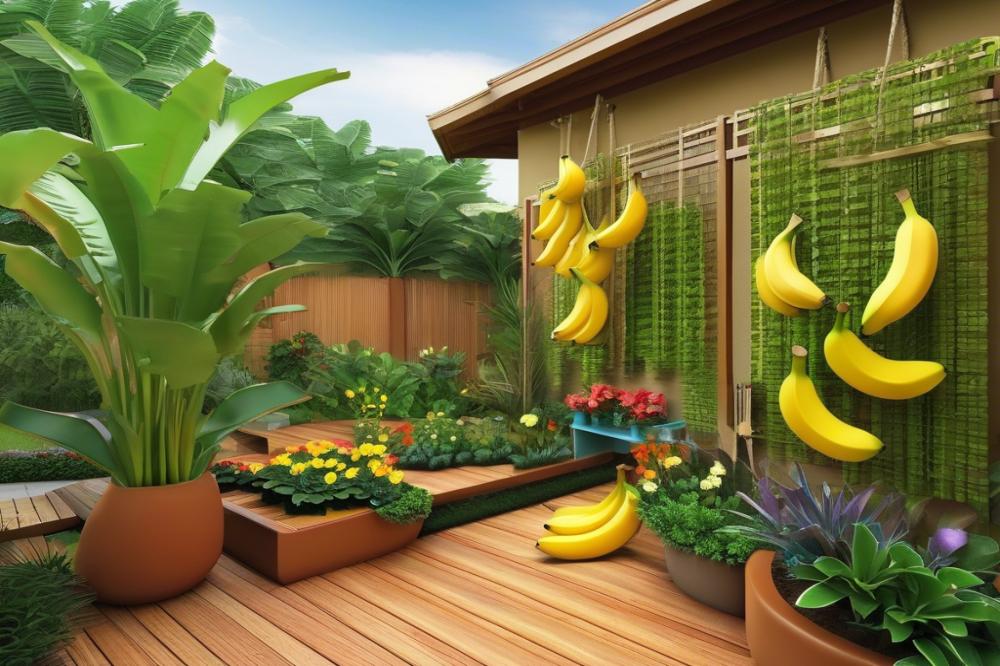

Aphids are small, soft-bodied insects that can cause significant damage to your plants. They typically come in various colors, including green, black, and brown. These pests feed on plant sap, weakening your plants and stunting their growth. Because they reproduce quickly, a few can turn into a massive infestation in no time.
The life cycle of these insects is astonishing. Aphids can produce several generations in a single season. Each female can give birth to live young rather than laying eggs, leading to rapid population growth. This ability allows them to thrive and spread, particularly in warm weather. As a result, they suck the vital nutrients from the plants, leading to yellowing leaves and a decline in overall plant health.
Preventing aphids is essential for the longevity of your garden. They not only damage the plants directly but can also lead to other issues, such as the growth of sooty mold. This mold can cover leaves and hinder photosynthesis, further impacting plant health. Successful aphid prevention is a key aspect of eco-friendly methods and sustainable gardening practices.
Using natural pest control offers a safer alternative to harsh chemical insect repellents. Incorporating homemade remedies, such as introducing beneficial insects like ladybugs and lacewings, can keep aphid populations in check. Adopting these garden tips will protect your plants and promote organic gardening principles.
In summary, understanding aphids and their detrimental effects on your plants can help you take proactive measures. By utilizing unique strategies for prevention and pest control, you can safeguard your garden’s health. Make the most of banana peel benefits and discover the simple ways to keep your plants thriving while maintaining an eco-friendly approach.
Banana Peels as a Natural Repellent
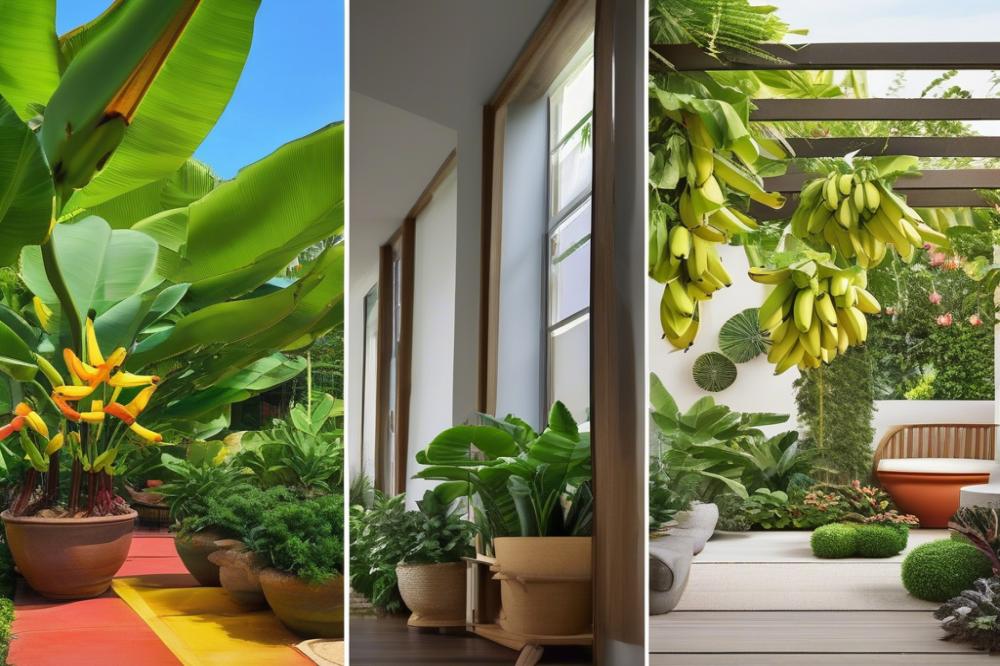

Aphids can be a gardener’s worst nightmare. These small insects suck the sap from plants, leading to stunted growth and even plant death. Fortunately, there are eco-friendly methods to combat these pests. One of the most affordable solutions is using banana peels. These peels contain a wealth of nutrients that can work to deter aphids.
The compounds present in banana peels have been found to be effective against various pests. When used in the garden, they release substances that repel insects. By incorporating them into your gardening routine, you create a barrier that helps keep your plants healthier. This form of natural pest control is safe and beneficial for the environment.
Think about the benefits for a moment. Using banana peels not only helps with aphid prevention but also enriches the soil. These peels are compostable, adding valuable nutrients back into the earth. As a result, sustainable gardening practices become easier. You’ll find that these homemade remedies save you money while protecting plant health.
As a natural option, banana peels offer a low-cost alternative to chemical insect repellents. Plus, they contribute to organic gardening, maintaining an eco-friendly approach. By using these simple garden tips, you can take charge of your gardening experience. Healthy plants lead to a vibrant garden, and that’s something every gardener desires.
In essence, banana peels hold the key to effective aphid management. They provide an inexpensive, sustainable solution while promoting a healthier garden ecosystem. Why not turn to these simple, yet effective, remedies to enhance your gardening journey? Protect your plants and the environment at the same time!
Methods to Use Banana Peels


Using banana peels can be a great way to control aphids in your garden. They are a simple and effective method of natural pest control. Let’s explore several ways to incorporate them into your gardening routine.
Burying Peels in Soil
Start by chopping the peels into smaller pieces. This helps them decompose faster. Dig a small hole near the base of your affected plants. Place the pieces in the hole and cover them with soil. As they break down, they release nutrients and help improve plant health. This method also attracts beneficial insects that can help fight aphids.
Creating Homemade Remedies
Another option is to make a simple spray using these peels. Gather a few ripe peels and chop them into small bits. Combine the chopped peels with water in a pot. Bring the mixture to a boil and let it simmer for about 15 minutes. Once cooled, strain it into a spray bottle. This homemade remedy can be used directly on your plants. Spray it on leaves where you see aphids. The sugars in the peels can act as an insect repellent.
Using Banana Peel Tea as a Spray
Banana peel tea is an excellent choice for those who love organic gardening. To make it, fill a jar halfway with chopped peels and top it off with water. Seal the jar and let it sit for a couple of days. After that, strain the liquid into a spray bottle. This tea can nourish your plants while also deterring pesky insects. Apply it every other week for best results. Remember to shake the bottle before use!
Additional Tips for Aphid Prevention
Integrating these eco-friendly methods into your gardening plan will promote sustainable gardening practices. Rotate your crops to avoid aphid infestations. Companion planting can help too. Some plants naturally repel aphids, enhancing your overall plant health. These strategies, when combined with the benefits of banana peels, can make a significant difference!
Complementary Organic Gardening Practices
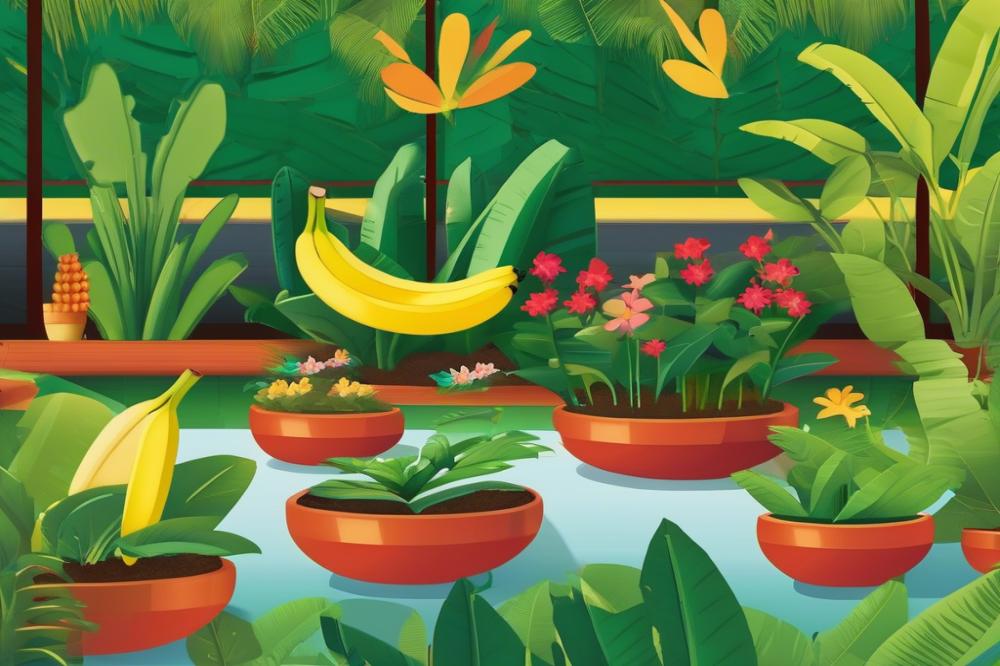

Using banana peels is just one part of a successful approach to natural pest control. Many garden tips can enhance your efforts in creating a thriving, healthy space. Incorporating several eco-friendly methods can provide additional protection against aphids and other pests.
Start by introducing beneficial insects, like ladybugs or lacewings. These natural predators will feast on aphids, helping maintain balance in your garden. A diverse garden can also attract these helpful critters. By planting a variety of flowers and herbs, you create a habitat that encourages pollinators and predatory insects to thrive.
Homemade remedies using garlic or soap can also deter unwanted pests. Mixing a few crushed garlic cloves in water creates a spray that staves off aphids. Soap solutions can eliminate soft-bodied insects without harming your plants. Dilute mild liquid soap in water and apply it to affected areas.
Regularly inspecting your plants is crucial for early detection. Look under leaves and at stem bases where aphids often hide. Catching infestations early means fewer issues later. Aphid prevention requires vigilance in your gardening routine.
Another fantastic method is using diatomaceous earth. This natural insect repellent is made from fossilized algae. Sprinkle it around your plants to create a barrier against soft-bodied pests. It’s safe for use in organic gardening and won’t harm beneficial insects when applied correctly.
Improve plant health by practicing crop rotation. Changing the location of your plants each season helps prevent pest buildup in the soil. A diverse planting schedule promotes a resilient ecosystem in your garden.
Incorporate companion planting, as some plants repel pests naturally. Marigolds, for instance, are known to keep aphids at bay. Grouping plants together can create a synergistic effect, enhancing growth and reducing pest problems.
Always consider natural repellents like neem oil. Extracted from the seeds of the neem tree, this oil disrupts pest life cycles. It can help with aphid control and many other common garden pests.
Utilizing these techniques alongside your banana peel benefits can lead to a flourishing garden. Explore sustainable gardening practices by combining various strategies. With a little creativity and effort, you can create a thriving space that outsmarts pests naturally!
Success Stories and Testimonials
Many gardeners have found success using simple homemade remedies to keep aphids at bay. One enthusiastic gardener shared how she placed banana peels around her tomato plants. In her case, the results were impressive. The plants thrived while pests stayed far away. This unique approach to natural pest control amazed her.
Another testimonial came from a small-scale farmer. He experimented with this eco-friendly method while growing peppers. After placing peels in the soil, he noticed a remarkable decrease in insect activity. His peppers flourished, showing the potential benefits of sustainable gardening practices.
Community forums buzz with discussions about garden tips that include this technique. A gardener mentioned feeling relieved after using banana peels for aphid prevention. She shared that not only did the plants look healthier, but the overall insect population in her garden dropped significantly.
People are excited to share their experiences. A couple discussing their organic gardening adventure noted how this method is easy to implement. They pointed out that banana peels are not just waste but valuable assets for plant health.
Using this strategy doesn’t require complex preparations. It’s approachable for anyone looking to improve their garden. One man reported that he was already seeing results after just a week. The insects that typically plagued his leafy greens vanished, allowing his plants to thrive.
Findings from various gardeners emphasize the advantages of using homemade remedies instead of harsh chemicals. Another user praised the simple nature of this technique. He said it’s perfect for those committed to eco-friendly methods. Watching his garden flourish has brought him joy and satisfaction.
As these stories show, many have discovered the banana peel benefits for their gardens. With a little creativity and effort, anyone can join in. This approach not only fights pests but also promotes a healthier growing environment.
Final Thoughts on Using Organic Remedies for Aphid Prevention
Using waste from your kitchen can be a brilliant way to keep your plants happy and healthy. Banana peels serve as a terrific organic remedy for repelling aphids. This unique method is not only effective, but it also helps reduce waste. Why toss those peels when they can protect your beloved plants?
Natural pest control can be as simple as repurposing kitchen scraps. By incorporating this strategy, you contribute to a more eco-friendly gardening approach. You’ll find that using such remedies aligns not only with sustainable practices but also with a growing movement toward greener lifestyles.
Explore other environmentally friendly garden tips to further enhance your gardening experience. There are countless strategies out there. From companion planting to homemade sprays, the options are plentiful. Each of these methods can add layers of protection to your plants, benefiting both the garden and the planet.
Gardening should nurture your plants as much as it nurtures you. Embrace these innovative, organic solutions. With a little creativity and effort, you can cultivate a thriving garden while working towards a healthier environment. Happy gardening!

